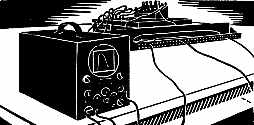 These research men found that the same chemical substance phosphocreatine acted as a "storehouse" or "accumulator" for electrical energy and the breaking down of this chemical was similar in action to that of discharging a battery of Leyden jars - producing a powerful surge of electrical energy. Although the individual units or cells of this natural battery can produce only about one volt, the combined effect of the 240 cells is quite high. In fact, the power delivered by shock can be several kilowatts. We can appreciate the significance of this power plant when we consider that it can produce for about three-millionths of a second at a time the power required to illuminate thirty of our ordinary 60 watt lamps. The most interesting point however, is that this can be done under water. |








